Covid-19
‘Killer Profits’: How Big Pharma hoards money, harms patients
Published
5 years agoon
By
Publisher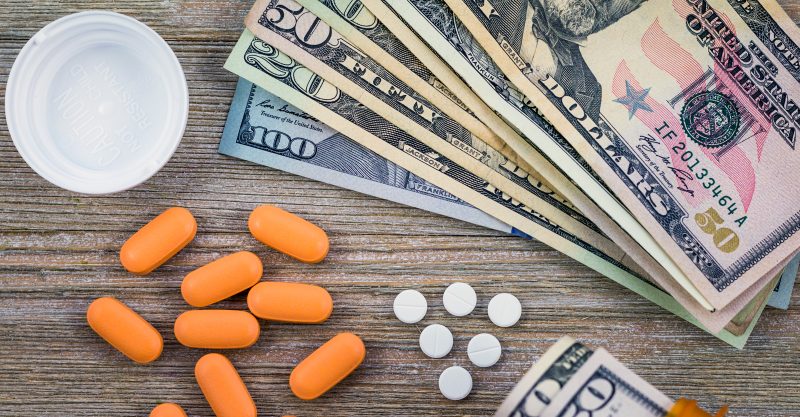
New report by Rep. Katie Porter reveals devastating effects of Big Pharma mergers and acquisitions on the U.S. healthcare system and its patients.
By Brett Wilkins
Rep. Katie Porter (D-Calif.) on Jan. 29, published a damning report revealing the devastating effects of Big Pharma mergers and acquisitions on U.S. healthcare and recommending steps Congress should take to enact “comprehensive, urgent reform” of an integral part of a broken healthcare system.
The report, “Killer Profits: How Big Pharma Takeovers Destroy Innovation and Harm Patients,” begins by noting that “in just 10 years, the number of large, international pharmaceutical companies decreased six-fold, from 60 to only 10.”
While pharmaceutical executives often attempt to portray such consolidation as a means to increase operational efficiency, the report states that “digging a level deeper ‘exposes a troubling industry-wide trend of billions of dollars of corporate resources going toward acquiring other pharmaceutical corporations with patent-protected blockbuster drugs instead of putting those resources toward’ discovery of new drugs.”
Merger and acquisition deals are often executed to “boost stock prices,” to “stop competitors,” and to “acquire an innovative blockbuster drug with an enormous prospective revenue stream.”
“Instead of spending on innovation, Big Pharma is hoarding its money for salaries and dividends,” the report says, “all while swallowing smaller companies, thus making the marketplace far less competitive.”
The report calls merger and acquisitions “just the tip of the iceberg of pharmaceutical companies’ anti-competitive, profit-driven behaviors”:
Pharmaceutical companies often claim that lowering the prices of prescription drugs in the United States would devastate innovation. Yet, as prices have skyrocketed over the last few decades, these same companies’ investment in research and development have failed to match this same pace. Instead, they’ve dedicated more and more of their funds to enrich shareholders or to purchase other companies to eliminate competition.
“In 2018, the year that [former President] Donald Trump’s tax giveaway to the wealthy went into effect, 12 of the biggest pharmaceutical companies spent more money on stock buybacks than on research and development,” the report notes.
Some key findings from the report:
Big pharmaceutical companies are not responsible for most major breakthroughs in new drugs. Rather, innovation is driven in small firms, which are often spun off of taxpayer-funded academic research. These small labs are then purchased by giant firms after they’ve assumed the risk needed to develop a blockbuster drug.
Instead of producing lifesaving drugs for diseases with few or no cures, large pharmaceutical companies often focus on small, incremental changes to existing drugs in order to kill off generic threats to their government-granted monopoly patents.
Mergers in the pharmaceutical industry have had an overall negative effect on innovation, taking what little competition existed in the industry and completely destroying it.
“Competition is central to capitalism,” Porter said in a press release introducing the report. “As our report shows, Big Pharma has little incentive to invest in new, critically needed drugs. Instead, pharmaceutical giants are free to devote their resources to acquiring smaller companies that might otherwise force them to compete.”
“Lives are on the line; it’s clear the federal government needs to reform how it evaluates healthcare mergers and patent abuses,” Porter added.
To that end, Porter’s report recommends the following actions:
Removing incentives that prioritize investors and Wall Street over patients.
Reevaluating the standards used by the Federal Trade Commission (FTC) for healthcare mergers.
Altering the presumption that most mergers and acquisitions are legal unless contested by an individual or group.
Lowering the cost of prescription drugs. Congress should pass legislation that reins in skyrocketing costs. This can begin with drug price negotiation legislation, such as the Elijah E. Cummings Lower Drug Costs Now Act, but must extend to include a larger class of drugs and cover all payers and the uninsured.
Preventing anti-competitive abuses of the drug patenting system. Congress should pass legislation, such as the Preserve Access to Affordable Generics and Biosimilars Act, the Affordable Prescriptions for Patients Through Promoting Competition Act, and the Stop STALLING Act, to stop abuses of the regulatory process.
“It’s time we reevaluate the standards for approving these mergers,” the report concludes. “It’s time we pass legislation to lower drug prices. And it’s time we rethink the structure of leadership at big pharmaceutical companies. Together, these strategies can help us bring more innovative, and critically needed, cures and treatments to market.”
- Originally published by Common Dreams.
You may like
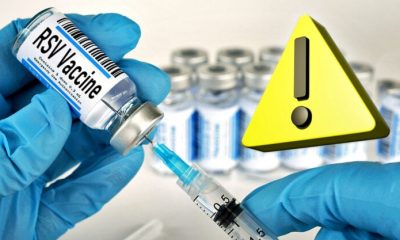

RSV vaccine linked to 34 deaths, 302 serious injuries


Researchers identify ‘improbably high rate of deaths’ in newborns who received new RSV shot
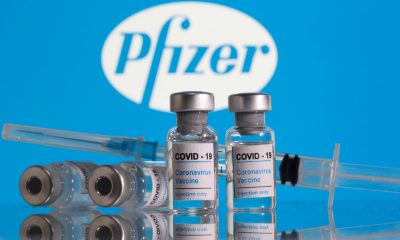

How Pfizer, Moderna control COVID-19 vaccine narratives, influence health policy
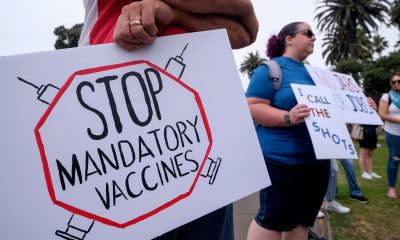

Doctors, activists, others intensify calls to stop COVID-19 vaccine shots
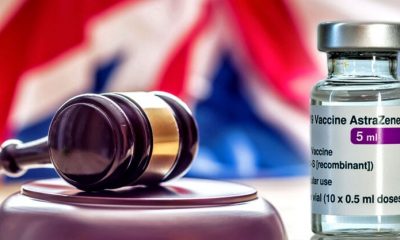

Over 80 lawsuits in UK allege AstraZeneca COVID vaccine severe Injuries


COVID vaccine linked to miscarriages, stillbirths among pregnant women
Trending

 Entertainment6 days ago
Entertainment6 days agoSimi addresses resurfaced 2012 tweets amid online backlash

 Health1 week ago
Health1 week agoSCFN, LUTH introduce bone marrow transplants as curative treatment for sickle cell

 Health4 days ago
Health4 days agoDeclassified CIA memo explored concealing mind-control drugs in vaccines

 Football1 week ago
Football1 week agoHarry Kane nets brace as Bayern edge Frankfurt 3–2 to go nine points clear

 Football1 week ago
Football1 week agoLate Flemming header stuns Chelsea as Burnley snatch 1–1 draw at Stamford Bridge

 Crime5 days ago
Crime5 days agoSenior police officers faces retirement after Disu’s appointment as acting IGP

 Education6 days ago
Education6 days agoPeter Obi urges JAMB to address registration challenges ahead of exams

 Health6 days ago
Health6 days agoNAFDAC issues alert on suspected revalidated SMA Gold infant formula

